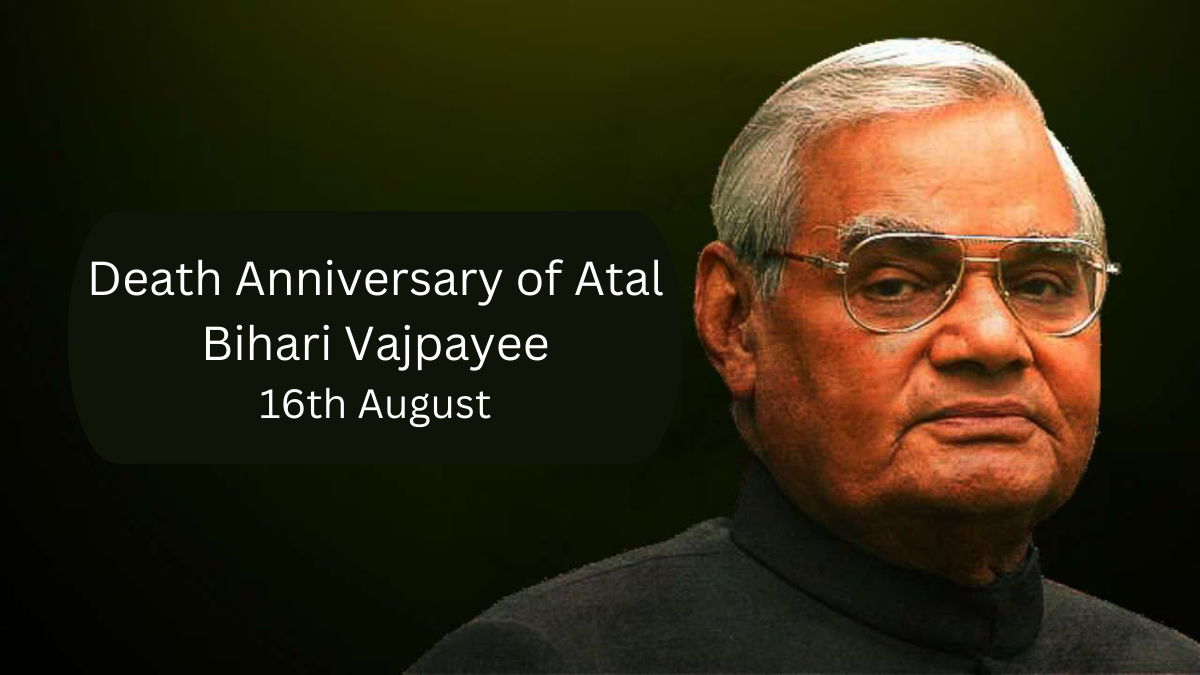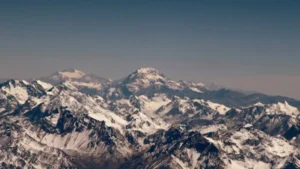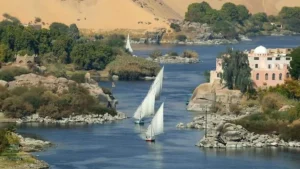On August 16, India observes the death anniversary of Atal Bihari Vajpayee, a distinguished statesman, poet, and visionary leader who profoundly influenced the country’s political landscape. Vajpayee, the 10th Prime Minister of India, is celebrated for his leadership and his ability to unite diverse ideologies while championing democratic principles.
Early Life and Background of Atal Bihari Vajpayee
Born on December 25, 1924, in Gwalior, Atal Bihari Vajpayee’s rise from a modest background to becoming one of India’s most esteemed leaders is a testament to his dedication and service. His early years were marked by his passion for politics and his ability to connect with people from all walks of life, which laid the foundation for his future success.
Atal Bihari Vajpayee – Political Career and Achievements
Vajpayee served as Prime Minister of India in three separate terms, demonstrating his political resilience and strategic vision. His tenure saw significant milestones, including:
- Pokhran-II Nuclear Tests (1998): Under Vajpayee’s leadership, India conducted nuclear tests, establishing itself as a nuclear power. This pivotal moment was a testament to his commitment to national security and technological advancement.
- Golden Quadrilateral Project: This ambitious infrastructure project aimed to connect major cities across India with a network of highways, revolutionizing the country’s road infrastructure and boosting economic development.
- Economic Liberalization: Vajpayee played a crucial role in India’s economic reforms, promoting policies that led to increased foreign investment and economic growth.
Diplomatic Efforts and Challenges
Vajpayee’s tenure was also marked by his emphasis on peace and diplomacy, even amidst challenges like the Kargil War of 1999. His efforts to improve relations with Pakistan, including the historic Lahore Bus Yatra, showcased his commitment to regional stability and peace.
Death of Atal Bihari Vajpayee
Atal Bihari Vajpayee passed away on August 16, 2018, leaving behind a legacy that continues to inspire. His contributions to India’s development, his dedication to democratic values, and his poetic sensibility have earned him admiration across party lines. As we mark his death anniversary, Vajpayee’s life and achievements serve as a guiding light for future generations, reminding us of his enduring impact on the nation.
Honors and Awards Presented to Atal Bihari Vajpayee
Vajpayee received numerous accolades, including:
- Padma Vibhushan (1992): India’s second-highest civilian honor.
- Bharat Ratna (2015): India’s highest civilian honor.
- Order of Ouissam Alaouite (1999): Morocco’s second-highest civilian honor.
- Bangladesh Liberation War Honour (2015): Awarded by Bangladesh.
He was also named one of the 100 Most Influential Persons by Time Magazine in 2004 and ranked as one of the Greatest Indians by Outlook magazine in 2012.
Literacy Work By Atal Bihari Vajpayee
Atal Bihari Vajpayee authored several works in Hindi, including both poetry and prose. Some notable publications are:
- Prose: National Integration (1961), New Dimensions of India’s Foreign Policy (1979), Decisive Days (1999).
- Poetry: Qaidi Kaviraj Ki Kundaliyan, Amar Aag Hai (1994), Meri Ikyavan Kavitaen (1995).
Atal Bihari Vajpayee – Legacy
Vajpayee’s legacy is commemorated through various memorials and honors:
- Good Governance Day: Marked on his birthday, 25 December.
- Atal Tunnel: Named after him, it is the world’s longest tunnel at Rohtang.
- Atal Setu: The third longest cable-stayed bridge in India.
- Atal Nagar: Renamed from Naya Raipur in his honor.
Inspiring Quotes by Atal Bihari Vajpayee
- Quiet diplomacy is far more effective than public posturing.
- I have a vision of India: an India free of hunger and fear, an India free of illiteracy and want.
- Victory and defeat are a part of life, which are to be viewed with equanimity.
- The regional parties have emerged as a strong force, and they, too, deserve a place in national politics.
- Poverty is multidimensional. It extends beyond money incomes to education, health care, political participation and advancement of one’s own culture and social organisation.
- If Pakistan had not accepted the demand to stop cross-border infiltration and the United States had not conveyed to us Pakistan’s guarantee to do so, then nothing could have stopped a war.
- People who ask us when we will hold talks with Pakistan are perhaps not aware that over the last 55 years, every initiative for a dialogue with Pakistan has invariably come from India.
- We want peace to be permanent.
- Indian democracy’s greatest strength is that we have always put the nation above politics.




 Which District of Uttar Pradesh is known...
Which District of Uttar Pradesh is known...
 Which Mountain is known as the Stone Sen...
Which Mountain is known as the Stone Sen...
 Which River is known as the Lifeline of ...
Which River is known as the Lifeline of ...








